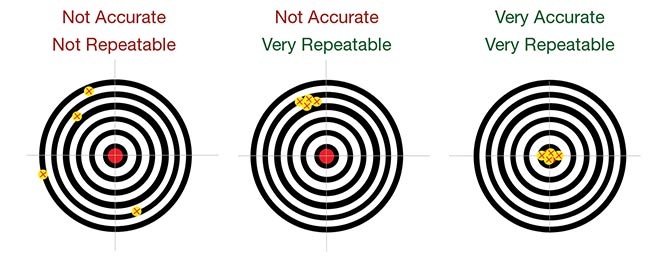A 14-year-old boy beat me at squash a couple of weeks ago for the third time in a row. I asked him for some feedback on my game, and he told me, “even a lot of your good shots aren’t very repeatable.” This kid is good at squash. So I listened to his advice. It’s very good indeed. And it also struck me as a very important metaphor for strategic communications work. It’s so important that what I do best can be repeatable under pressure. That’s what makes a consistent top performer in media relations and editorial writing. As well as on the squash court. Think about it this way if you think your marketing, communications and PR activity might need a shot in the arm. Can you tell me what you’re doing that’s repeatable? Can you tell me where you’ve gotten lucky and won, but you’re not sure how or why? Can you spot the difference between the two approaches?
What the kid meant is; when I’m under pressure, I tend to rely on a bit of luck. I take big swings and sometimes, I’ll hit a winner. But because my fundamentals aren’t there—I don’t hit very accurate shots, for example—he has the upper hand. And he has the upper hand more often. Instead of trying to hit winners from under pressure, I need to concentrate on something else. I need to be able to hit a good, consistent shot from anywhere on the court. It doesn’t have to be a winner, but I do have to be able to repeat it, over and over. And if I’m patient, then in the end my opponent will make a mistake, and I can be more aggressive. But I need to bide my time and have more confidence in my game. I also need to enjoy the ebb and flow of the game more. Rather than only trying to dominate at all times. It’s ironic, but by trying less hard to win, I’ll win more often.
I realize this is a little bit “zen of the squash court.” And such advice is hardly going to translate for everyone. But it is amazing to me how when I do learn something like this in sport, or elsewhere, I can put it to reflective use in my work. In particular, I’ve found, lately, that when I first meet a client, it helps to think this way about scoping a job. By that, I mean I ask the same questions of every would-be client, even if they tell me they know what they want. They might tell me, for example, that they’re focused on “media relations”. But I’ll still ask them about their goals for the year. A good question I always ask is, “if you only accomplished one thing this year, what would the headline about it say?”
By asking repeatable scoping questions like this, I’ve found I make fewer assumptions. That means I tend to get to the heart of a client’s ambitions faster. And it means I can sometimes help them make a strategic leap to realizing they might want something else. That’s why I’m a strategic communications consultant. I help people realize their boldest ambitions. I’m not only there to get you quick press hits. Although I can do that, too, on a repeatable basis.
Sure, my would-be clients often want their name to appear in the newspapers. But if they’re trying to shift public perception, they need more than headlines. They need headlines that make people have “a-ha” moments. They need headlines that show the urgency of their issue is fiercer than people had realized. To do that, they might need to produce some research or show the real world impact of their issue or cause. And to do that, they might need to think different. They might need to spend a bit more time figuring out how to tell that story with data or in other creative new ways. They might need to bring new voices to the table to do it. They might need to reach across the aisle to pass some legislation. That’s how you shift the culture in your direction. You can’t only preach to the converted.
That’s where my “game”, and I’ll call it my “practice,” my work, has improved, over the last three years. I’m more consistent in asking the right questions so that I can repeat great results. And I make fewer assumptions. I take fewer big swings, try to win less often, and in the broadest sense, the outcomes have improved. I’m proud I’ve learned to be better at what I do than I was when I started out. It feels good to have learned a bit about how to be most effective for my clients. Perhaps now is a good time to raise my fees!
Now, I’m going to have to practice some squash shots so I can give that kid another game. I’d be lying if I said it didn’t hurt to be repeatedly humiliated by this young man. But: ommmmm.


